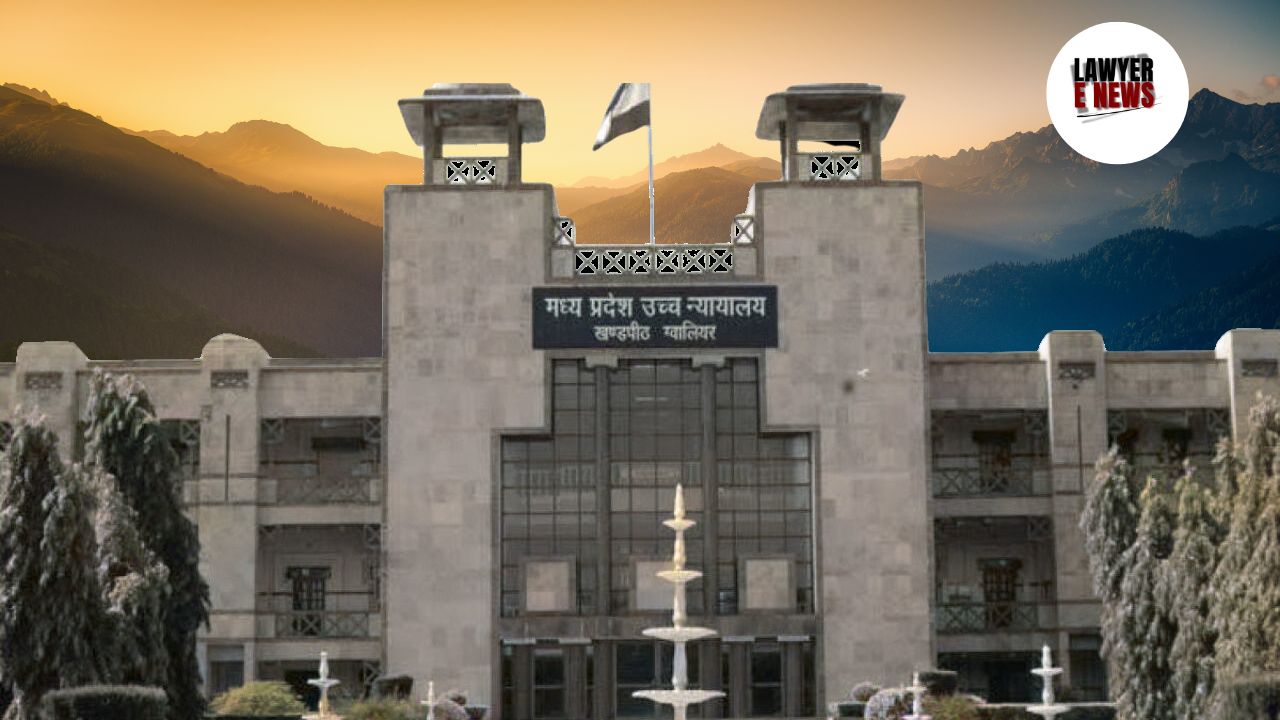-
by Admin
15 February 2026 5:35 AM



Madhya Pradesh High Court reaffirms the necessity of impartial arbitrators, setting aside appointment due to conflict of interest. The Madhya Pradesh High Court, in a significant judgment, has set aside the appointment of an arbitrator due to a conflict of interest, reaffirming the principles of impartiality and independence in arbitration proceedings. The case, involving a construction contract dispute, underscores the court's commitment to maintaining the integrity of arbitration by ensuring that arbitrators are free from any bias or relationship that might influence their decisions.
Rajkumar Tamotia and Smt. Anjana Tamotia entered into an agreement with Alok Sharma on September 12, 2019, for the construction of a complex. Disputes arose after the completion of the construction, leading the respondent, Alok Sharma, to invoke the arbitration clause in February 2024. The arbitrator appointed, Shri Vinod Kumar Bhardwaj, was contested by the Tamotias on the grounds that he had a professional relationship with Sharma, making him ineligible to serve as an impartial arbitrator. Despite the Tamotias' requests to appoint a neutral arbitrator, the proceedings continued under Bhardwaj, prompting the applicants to seek judicial intervention.
The court found that the appointed arbitrator was ineligible due to his relationship with the non-applicant, as specified under Item 5 of the Seventh Schedule of the Arbitration and Conciliation Act, 1996. This provision disqualifies any individual who has a significant relationship with one of the parties from serving as an arbitrator.
"On the facts of the present case, it is clear that the Managing Director of the appellant could not have acted as an arbitrator himself, being rendered ineligible to act as arbitrator under Item 5 of the Seventh Schedule," noted the court.
The judgment heavily referenced the principles of independence and impartiality as enshrined in Section 12(5) of the Arbitration and Conciliation Act, 1996. The court emphasized that any appointment of an arbitrator must be void ab initio if the individual is ineligible due to conflicts of interest, as laid out in the Act.
The court cited the Supreme Court's interpretation in the case of Bharat Broadband Network Ltd. v. United Telecoms Ltd., which stated: "The scheme of Sections 12, 13, and 14 is that where an arbitrator makes a disclosure in writing which is likely to give justifiable doubts as to his independence or impartiality, the appointment of such arbitrator may be challenged under Sections 12(1) to 12(4) read with Section 13".
The judgment referenced multiple precedents, including TRF Ltd. v. Energo Engg. Projects Ltd., to reinforce its stance on the nullity of arbitrator appointments made by ineligible persons. "The appointment of an ineligible person as arbitrator is void ab initio and such appointments cannot be countenanced in law," the court reiterated, reflecting the principles laid down in previous rulings.
This ruling by the Madhya Pradesh High Court reinforces the stringent standards required for the appointment of arbitrators, ensuring that arbitration remains a fair and unbiased method of dispute resolution. By setting aside the appointment of a conflicted arbitrator, the court has underscored the necessity for adherence to the principles of impartiality and independence, which are crucial for the credibility of the arbitration process. This decision is expected to influence future arbitration appointments, ensuring that arbitrators are chosen based on their neutrality and lack of connections to the disputing parties.
Date of Decision:22 May 2024
